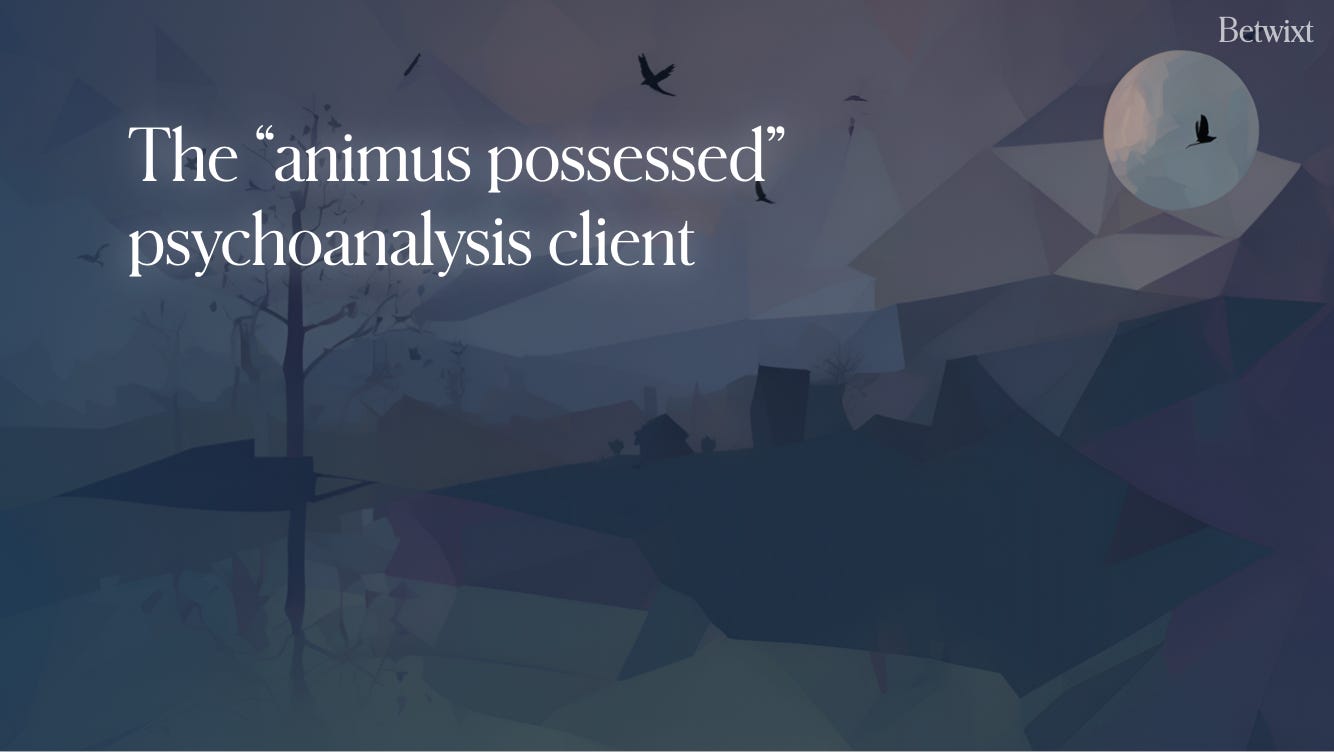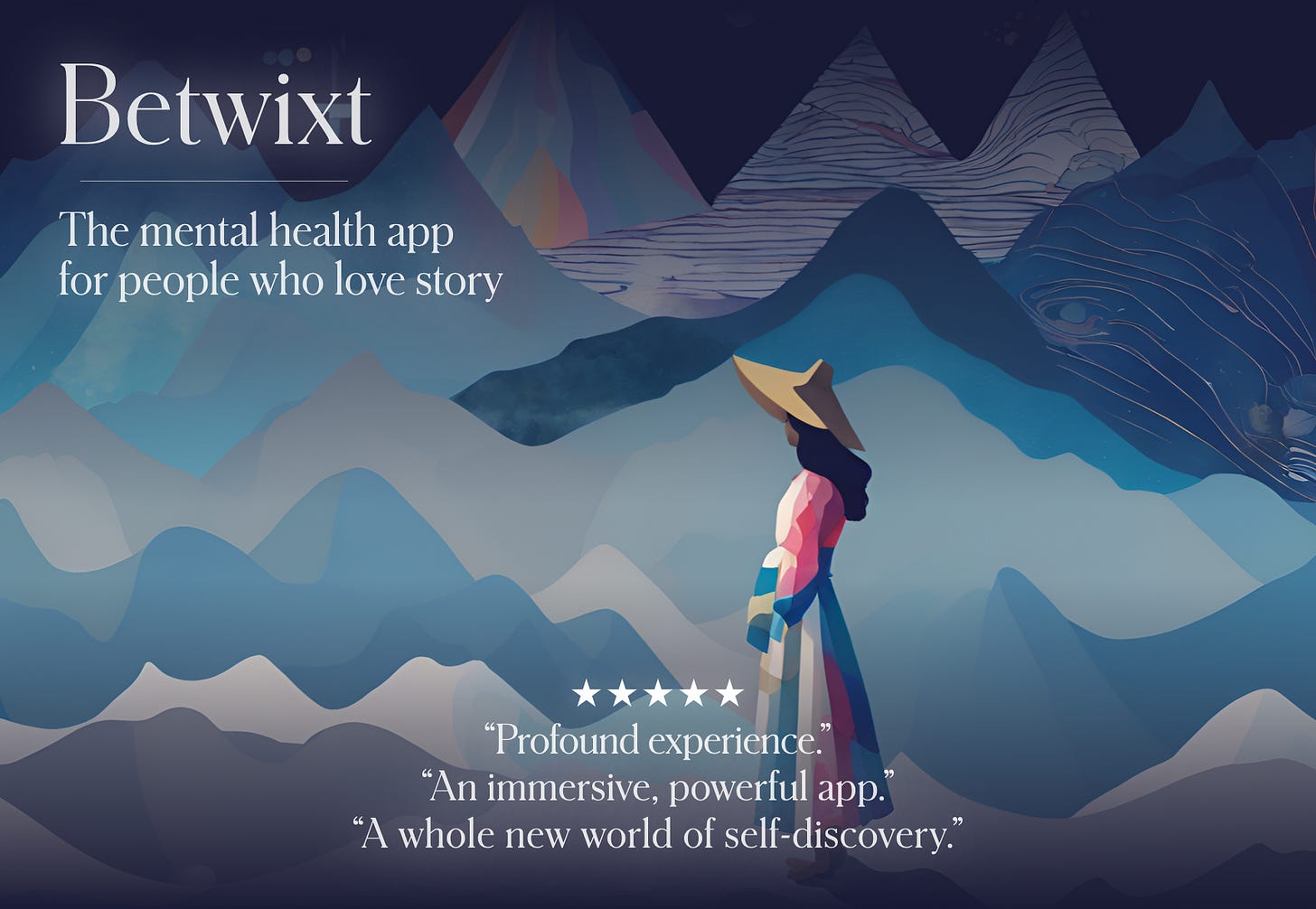Negative, critical people: how to know when enough is enough
A demon descends – meet the unexpected way to stand strong in the face of evil
You can listen to this post on TikTok, YouTube or Instagram.
***
When I was at uni, there was one woman in our friendship group who had this awful habit of crapping all over everyone else's ideas. It was like a reflex: whenever someone would enthuse about a new hobby or creative project, she'd listen and then immediately dampen all that joy with some kind of minor criticism, or by pointing out why it wouldn't work. Her critiques were probably all quite reasonable, to be honest, and she certainly tried to deliver them sensitively, but as this pattern repeated, everyone around her just felt increasingly downtrodden and repressed. In the end, her friends learned not to share their experiences with her and she got sidelined.
This kind of story is, unfortunately, all too common. But what's going on in dynamics like that one? And is there anything we can do to turn them around?
This post is about what Carl Jung would have called psychological "possession".
Carl Jung and the collective unconscious
Carl Gustav Jung (/jʊŋ/ YUUNG;[1][2] German: [kaʁl ˈjʊŋ]; 26 July 1875 – 6 June 1961) was a Swiss psychiatrist, psychotherapist and psychologist. After ending a period of collaboration with Freud and involvement in the early psychoanalytic movement, he went on to found the school of analytical psychology.
Jung made untold contributions to psychoanalytic theory in his time, but perhaps the biggest one was his discovery (if that's the right word) of the collective unconscious – that is, the realm of unconscious awareness that's common to all humankind, linking us all together.
If we were able to pop the lid and look inside the collective unconscious, what we'd find would be a whole load of archetypes – these are universally recognised patterns, many of which you'll know as particular characters, such as the Fool, the Warrior, the Lover, the Earth Mother or the Wise Old Man. However, it's important to remember that the archetypes themselves are not characters or individuals; they are motifs. If the collective unconscious were a computer program (which some people believe to be true), then archetypes would be the core, recurring snippets of code. The idea is that these motifs inform our choices, actions, and perception of the world, moment by moment, day by day. UNconsciously.
Archetypes and psychological possession
The reason we tend to think of archetypes as characters is that it’s how they show up in all stories – from myths to movies – in both character types and the storylines that we all know so well, such as the Hero's Journey.
But we also see these archetypal characters in those around us, and in ourselves. Sometimes, this happens in a fleeting instance – for example, the regal Sovereign showing up in a moment of profound presence and poise – and sometimes, in a more enduring way, like that one person who just refuses to grow up, or the evil boss who can't say a word without sounding like a bully.
Regardless of how they might seem at first glance, no archetype is fundamentally good or bad. In fact, they all have multiple faces: on the one hand, they have their healthy and effective sides, and on the other, their destructive shadow versions. One thing that Jung warned of time and time again was that to over-identify – really, just to identify – with any one archetype is asking for trouble because it opens the door to "possession" by that character's essence.
“Possession, though old-fashioned, has by no means become obsolete; only the name has changed. Formerly they spoke of ‘evil spirits,’ now we call them ‘neurosis’ or ‘unconscious complexes.’”
– Carl Jung, “Archetypes and the Collective Unconscious”
At the less-threatening end of the spectrum, this is the all-too-common situation where someone gets stuck in a certain pattern or mode – building their identity around themselves as Parent, for example, or as Warrior, and therefore meeting all challenges and walking into all situations from that one limited place. When "possessed" in this way, we become inflexible and invariably vulnerable to the darker aspects – the "demon" parts – of the archetypal world.
The "animus possessed" therapy client
In her book "Shadow and Evil in Fairytales", Marie-Louise von Franz (a psychoanalyst and student of Jung's) talks about her first ever patient, who was "animus possessed". This essentially means that she would have been quarrelsome, critical and aggressive; really hard work for a first client. Indeed, she was difficult enough for von Franz to pass up the chain to be seen by Jung himself, who promptly recommended she "kick this lady out of analysis" because he believed continued therapy would only make matters worse – that it was "feeding the demon of that patient" instead of the patient herself.
"It was as if her evil animus were sitting in front of her mouth, and whenever one gave her a good bit, he got it. In effect the demon got fatter and she got thinner."
– Marie-Louise von Franz, "Shadow and Evil in Fairytales"
Please note that this book was written in the 70s and we're probably talking about an event that happened in the 40s or 50s, so she uses very different language to what we'd expect now. In fact, the way von Franz talks about therapy is, in places, absolutely hilarious, even verging on shocking, such as this instance, where we hear that she did indeed kick this patient out "telling her what a cheating, lying devil she was".
But if this sounds heartless to you, you might be surprised to learn that the story has a happy ending: the immediate effect of cutting this patient off was that she started to get better. She even sent von Franz a thank-you letter for the kick up the backside years later. So, it would appear that Jung was right – the Demon had to be starved, before the human could fight it off.
Dealing with critical people
So what can we do with this information? Should we just ostracise all negative people in one huge ghosting session?
A note on abusive or manipulative people:
If someone in your life is being abusive, or you feel unsafe in any way, then you may well need to cut that person off or get away from them in some other way. Please do whatever you need to do in order to feel safe.
No. I'm not saying that (except in the case of abuse, of course). I am saying that if we repeatedly give something to someone – whether it's money, time, kindness – and they repeatedly throw it back in our faces or use it to damage themselves (or us) further, then we need to stop giving them that particular thing because they aren't getting it. Their demon is gobbling it up before they have a chance to even see what's being offered.
Unexpressed creativity
So what can we do about it? It can help to understand one of the main ways in which this kind of possession can come about. Jung taught that one of the most wicked destructive forces, psychologically speaking, comes from unused creative power or energy. If somebody has a creative gift, a creative urge, or just your run-of-the-mill desire to make something but they don't because they're too afraid of judgement, don't feel like they're allowed nice stuff, or because they feel pressured to take a different path in life, then it's the demon side of the archetype will take hold of them – jealous, frustrated and devastatingly adept at understanding the world around it, the demon of the shadow Artist (if you like) will try to destroy all other people's creativity through criticism, derision and the pretence of superiority.
The only way – the only way – for that to stop is for this person to take all of that energy and channel it into the thing they actually want to be doing. We can't make them do that. We can only just, sometimes, make ourselves do that.
You may have guessed that the critical friend I told you about earlier was me. In my first year at art school, I was in a horribly abusive, restrictive relationship that no one else could see. My boyfriend, struggling with his own demons, systematically cut me off from everyone I knew, even my family, and he completely blocked every degree project I started, too, criticising my work, telling me I was talentless, and as a result, over the course of that year, my demon just got fatter and fatter as I wasted away.
That boyfriend and I broke up between my first and second year, and after that, I slowly came back to life. That critical bitterness faded, too. While this was going on, I learned from my friends what I had been like during that first year. People told me that I had come across as if I thought I was better than everyone else, and I could not believe it, because from where I was, trapped between two very real demons, the only experience I knew that year was fear. Nothing else was able to get through.
So if you have someone who behaves like that in your life, or if you are the person who is possessed in this way, here's what to do:
First, remember that the chronically critical and interminably negative are hurting; people stuck in this mode are blocked and frustrated at best, petrified at worst.
Next, be aware of the things you offer someone like that that don't help, and stop offering those things. Whatever you need to do in order to stop, do it. This may mean walking away and if that's what has to happen for you to feel protected, even if it's only temporary, then do it – not in anger, definitely not in order to exact revenge but because the space may be healing for both of you. However, walking away won't always be necessary. Either way, just remember that if what you're offering is not helping, then it's potentially doing harm instead.
Finally, be ready to encourage this person if and when they start to fight back, or to blossom, or whatever it is that their healing looks like. Be ready to support them in what they want to do or make or learn because to be doing the things we are meant to do, the things that our bodies and souls ask us for, to be free to be ourselves in the world… that is the only thing that can guard us from this kind of possession – it is the answer, in other words, to evil.
Thank you for reading!
We’re Hazel (ex boxer, therapist and author) and Ellie (ex psychology science writer). We left our jobs to build an interactive narrative app for self-awareness and emotion regulation (Betwixt), which you can try on Android here and on iOS here.







This is fascinating and very helpful. First there’s the reminder to park our judgements at the door because we can never know what is in someone else’s mind and heart. Next it’s interesting to examine what may need to be taken away in order to stop feeding the monster, both in myself and others.
The dance of the archetypes is endless. I’d love to see you two amazing beings write more on this.
Thanks for another great essay!
Thanks for this. I think for me I needed to first recognise that I have historically been trauma bonded to those who crap on me & my ideas. Awareness of this bond/behaviour pattern has better enabled me to step away from certain people's negativity, as well as to feel compassione towards such folk. As you succinctly point out, negativity usually comes from a place of unhappiness.